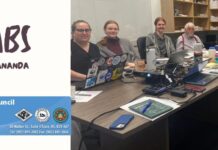Authored by: Chika Ezeanya-Esiobu, Chidi Oguamanam and Vedaste Ndungutse
Abstract: This study explores the use of Indigenous medicinal knowledge by rural Rwandan livestock farmers to treat cattle and, at the same time, the degree to which that ethno-veterinary knowledge is reflected in the country’s technical and vocational education and training (TVET) instruction. The research finds that while farmers use numerous Indigenous medicinal innovations to treat their animals—with most of the treatments drawing on locally occurring Indigenous herbs—there is a near-complete absence of this knowledge in the TVET Animal Health curriculum, which focuses only on Western-origin modern veterinary practices. This leaves Rwandan TVET graduates unprepared for optimal engagement with rural farmers who bring their cattle in for treatment at veterinary clinics, a step which farmers typically take only after having attempted cures through traditional means or when the treatment needed is available only via modern veterinary medicine.










